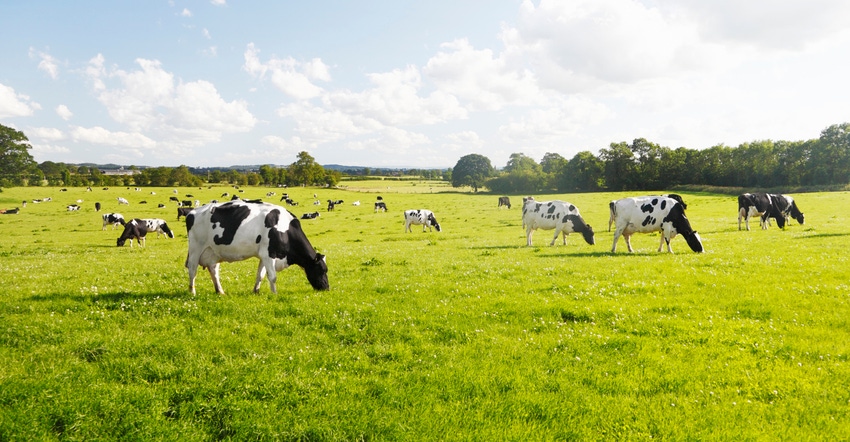June 18, 2020

General Mills has announced the start of a three-year regenerative dairy pilot in western Michigan, a key sourcing region for its fluid milk supply. General Mills has partnered with consultants Understanding Ag and dairy cooperative Foremost Farms to pilot regenerative practices and provide support to participating dairy farmers.
This is the third regenerative agriculture pilot that the company has launched – and the first for its dairy ingredient supply – since making a commitment in 2019 to advance regenerative agriculture practices on 1 million acres of farmland by 2030.
“In order for regenerative agriculture to be successful, it must first be economically viable for farmers as a lever to help build operational and financial resilience,” said Mary Jane Melendez, chief sustainability and social impact officer at General Mills. “With this pilot, General Mills is committed to ensuring that the transition to regenerative practices will be beneficial to our dairy partners and enhance the overall health of their farms.”
The three dairy farms in the pilot, which collectively manage more than 14,000 acres, were chosen for their proximity to General Mills’ dairy manufacturing facility in Reed City, Mich., which produces a variety of Yoplait products. As the pilot begins, Understanding Ag consultants will meet with each dairy farmer to co-develop and implement custom regenerative management plans for a portion of their operation. Throughout the pilot, partners will monitor data and measure impacts to soil, biodiversity, water, animal well-being and farm profitability.
“As an industry, dairy farms have been especially hard hit in recent months and their resiliency is being tested. We believe regenerative agriculture builds and strengthens farmer resilience so they can better withstand pressures, be it societal, financial or environmental,” said Doug Martin, president of the General Mills U.S. yogurt business.
What is regenerative agriculture?
Regenerative agriculture is a holistic, principles-based approach to farming and ranching that seeks to strengthen ecosystem and community resilience. These practices pull carbon from the air and store it in the soil and can help the land be more resilient to extreme weather events. Additionally, regenerative agriculture practices help to increase water infiltration, improve nutrient cycling, and reduce soil erosion which have been shown to positively impact the quality of nearby lakes, rivers and streams. These benefits can translate to farmers’ pocketbooks by ensuring that more nutrients stay in the field to be absorbed by plants rather than lost to wind or water erosion. Regenerative practices on dairy farms can look slightly different than row crop farms, specifically incorporating adaptive grazing on pastures and cropland.
Why participate?
"In the midst of very challenging times for dairy farmers, the Michigan pilot is designed to substantially build soil health, mitigate harmful runoff and erosion, restore natural ecosystem function, and revitalize farm and rural economies,” said Dr. Allen Williams, sixth generation farmer and rancher and founding partner at Understanding Ag.
“The Regenerative Dairy Pilot Program in Michigan gives our farmers the chance to reduce water and wind erosion all while providing top quality feed to their animals," said Greg Schlafer, Foremost Farms USA, President & CEO.
Research partners to develop modeling tools
Additionally, General Mills is supporting a team of researchers from Cornell University and the University of Wisconsin-Madison to model holistic impacts from change in farm management practices.
The General Mills previously committed to advance regenerative agriculture on 1 million acres of farmland by 2030. In March 2019, General Mills launched a regenerative oat pilot with 45 farmers across North Dakota, Saskatchewan and Manitoba implementing practices on more than 50,000 acres of farmland. And in January 2020, the company launched its second pilot consisting of 24 farmers growing wheat across a collective 17,000 acres in central Kansas. These pilots will also measure the environmental and economic outcomes over the duration of their respective three-year programs.
Source: General Mills, which is solely responsible for the information provided and is wholly owned by the source. Informa Business Media and all its subsidiaries are not responsible for any of the content contained in this information asset.
You May Also Like




